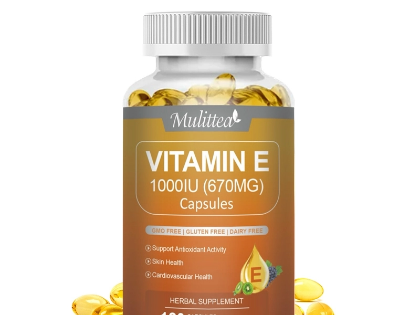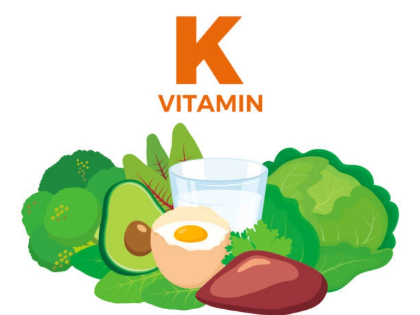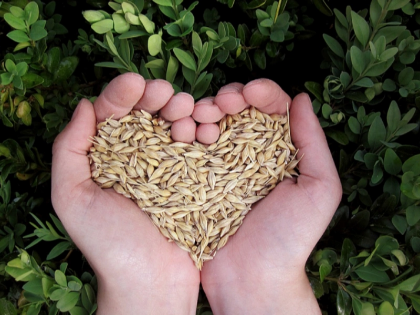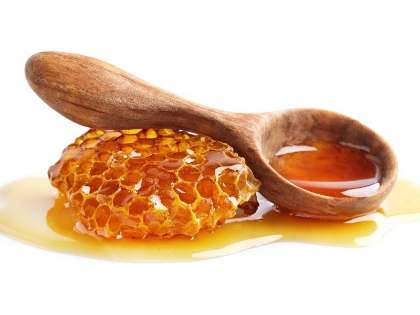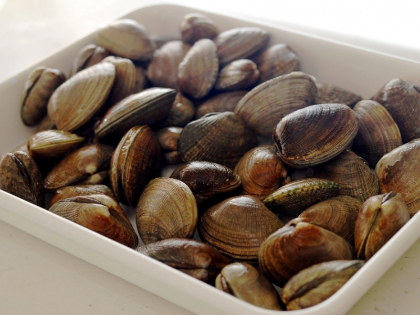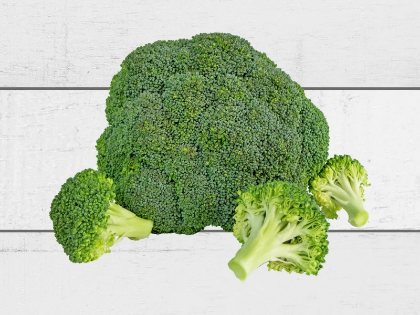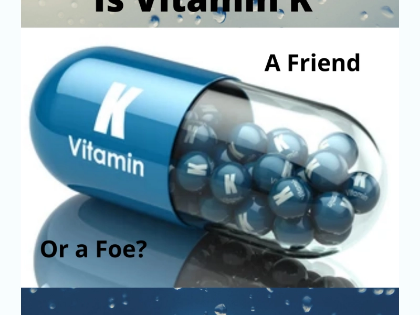The Essential Role of Vitamin K in Blood Clotting
A fat-soluble vitamin, vitamin K is essential for many different body processes—most importantly, blood clotting. Found in green leafy vegetables, K1 (phylloquinone) and K2 (menaquinone), which is found in fermented foods and animal products, it appears in two main forms. Maintaining ideal health depends on both types, although their functions in blood coagulation are especially important. Knowing the value of vitamin K helps people to value how it supports general wellness and health.
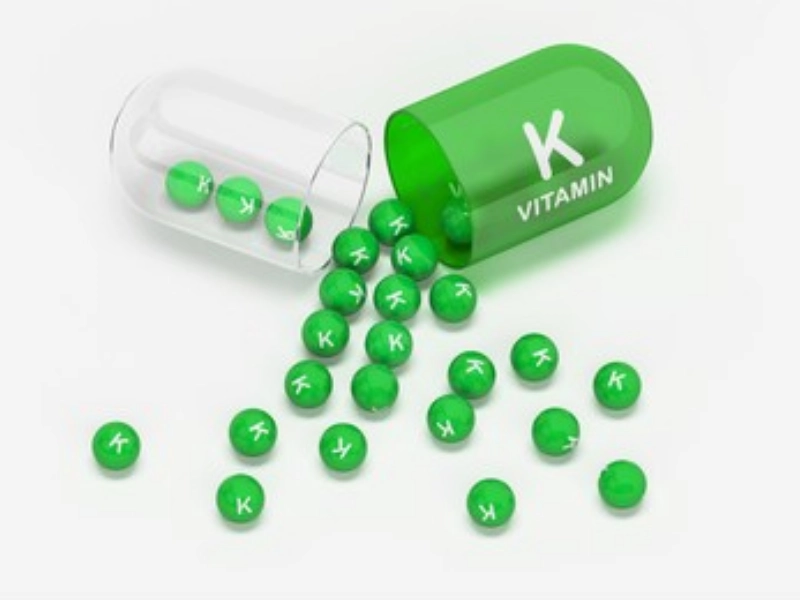
2. Blood Clotting Methodology
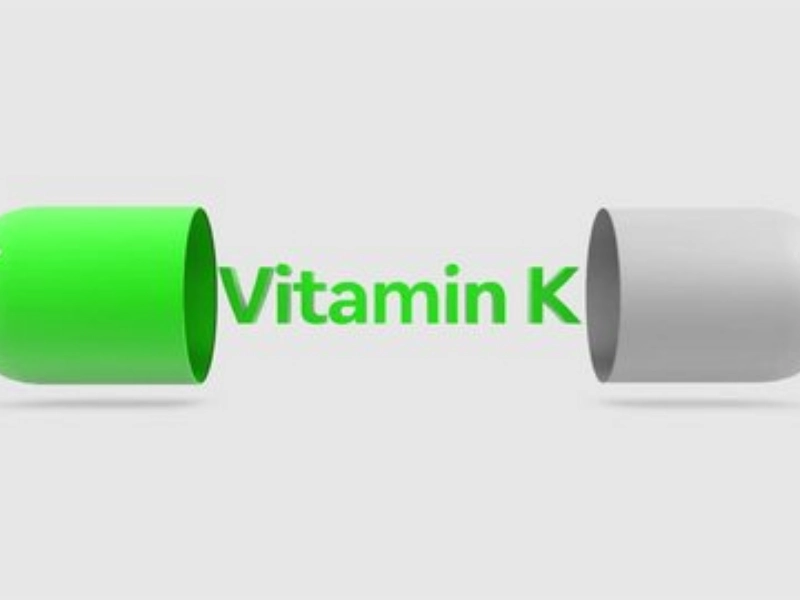 A complicated process, blood clotting—also known as coagulation—helps to stop too much bleeding following injuries. The body starts a sequence of events involving platelets and several proteins called clotting factors when a blood artery is compromised. Many of these clotting factors—including prothrombin (factor II), factors VII, IX, and X—synthesise themselves from vitamin K. The body cannot efficiently create these proteins without enough vitamin K, which results in reduced clot formation and higher bleeding risk.
A complicated process, blood clotting—also known as coagulation—helps to stop too much bleeding following injuries. The body starts a sequence of events involving platelets and several proteins called clotting factors when a blood artery is compromised. Many of these clotting factors—including prothrombin (factor II), factors VII, IX, and X—synthesise themselves from vitamin K. The body cannot efficiently create these proteins without enough vitamin K, which results in reduced clot formation and higher bleeding risk.
3. How does vitamin K influence clotting factors?
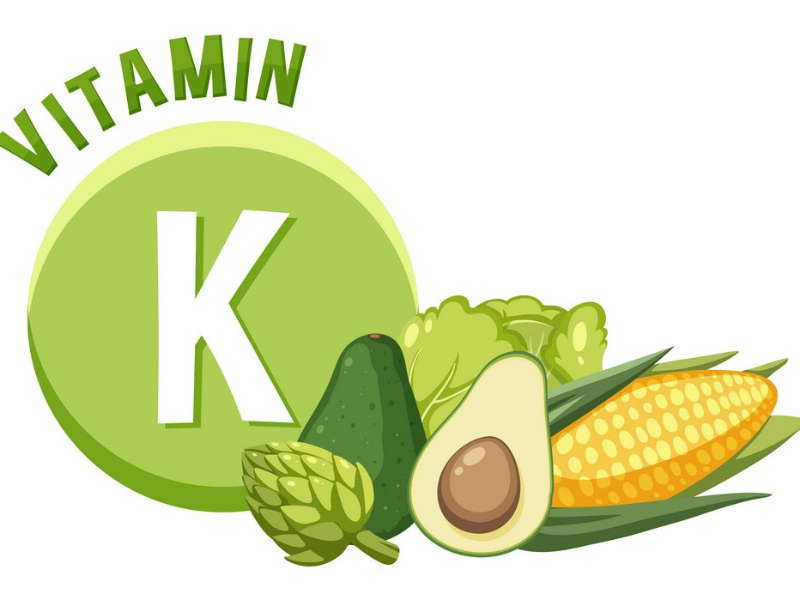 Cofactor vitamin K helps the enzyme gamma-glutamyl carboxylase to change particular proteins such that they can bind calcium ions. Activation of clotting factors depends on this change. For instance, the precursor of thrombin, prothrombin, converts only with vitamin K. A fundamental enzyme in the clotting process, thrombin turns fibrinogen into fibrin, creating the mesh that keeps the blood clot stable. The whole clotting cascade is weakened without vitamin K, thereby posing possible health hazards.
Cofactor vitamin K helps the enzyme gamma-glutamyl carboxylase to change particular proteins such that they can bind calcium ions. Activation of clotting factors depends on this change. For instance, the precursor of thrombin, prothrombin, converts only with vitamin K. A fundamental enzyme in the clotting process, thrombin turns fibrinogen into fibrin, creating the mesh that keeps the blood clot stable. The whole clotting cascade is weakened without vitamin K, thereby posing possible health hazards.
4. Providers of Vitamin K
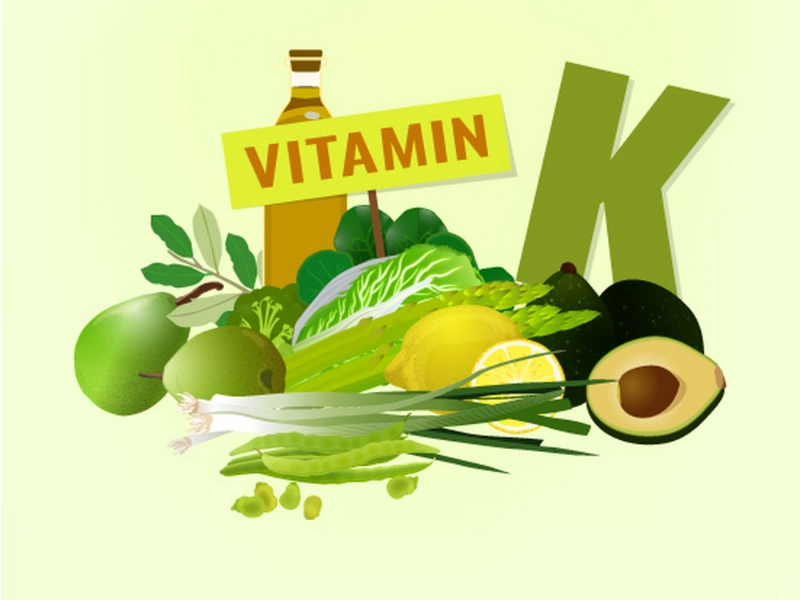 One must incorporate a range of items in the diet if one is to keep appropriate levels of vitamin K. Excellent providers of vitamin K1 are green leafy foods, including broccoli, kale, and spinach. Other sources include several fruits like avocado and kiwi as well as Brussels sprouts and green beans. Together with animal products like egg yolks and liver, fermented foods include natto, sauerkraut, and some cheeses that also contain vitamin K2. Including these foods in a balanced diet will assist to guarantee enough vitamin K consumption.
One must incorporate a range of items in the diet if one is to keep appropriate levels of vitamin K. Excellent providers of vitamin K1 are green leafy foods, including broccoli, kale, and spinach. Other sources include several fruits like avocado and kiwi as well as Brussels sprouts and green beans. Together with animal products like egg yolks and liver, fermented foods include natto, sauerkraut, and some cheeses that also contain vitamin K2. Including these foods in a balanced diet will assist to guarantee enough vitamin K consumption.
5. Inadequacy and Its Effects
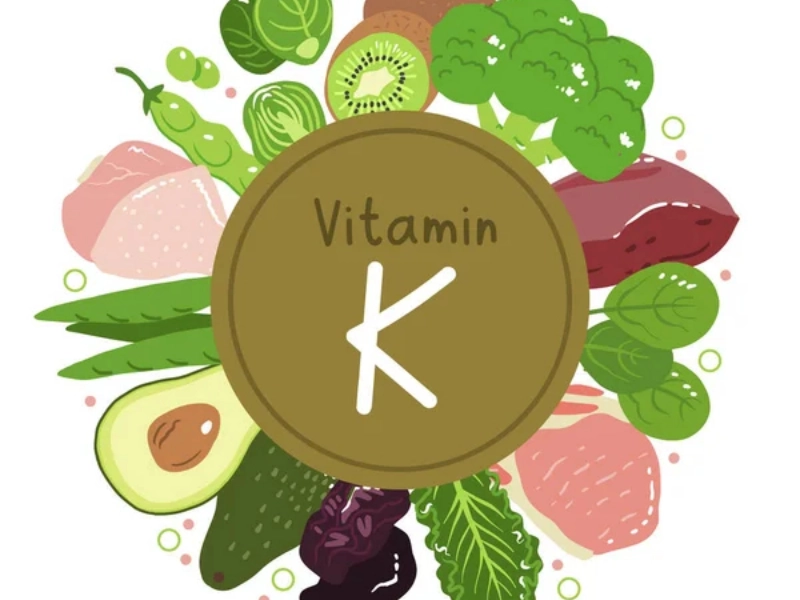 Deficiency of vitamin K can cause major medical problems mostly related to poor blood coagulation. Low vitamin K levels can cause simple bruising, extended bleeding from injuries, and in severe cases even spontaneous haemorrhage. Many hospitals give a vitamin K injection soon after birth to prevent hemorrhagic illness of the infant since newborns are more sensitive to vitamin K shortage. In adults, several disorders include malabsorption syndromes, or extended antibiotic use can also cause deficiency.
Deficiency of vitamin K can cause major medical problems mostly related to poor blood coagulation. Low vitamin K levels can cause simple bruising, extended bleeding from injuries, and in severe cases even spontaneous haemorrhage. Many hospitals give a vitamin K injection soon after birth to prevent hemorrhagic illness of the infant since newborns are more sensitive to vitamin K shortage. In adults, several disorders include malabsorption syndromes, or extended antibiotic use can also cause deficiency.
6. Vitamin K's Part in Bone Health
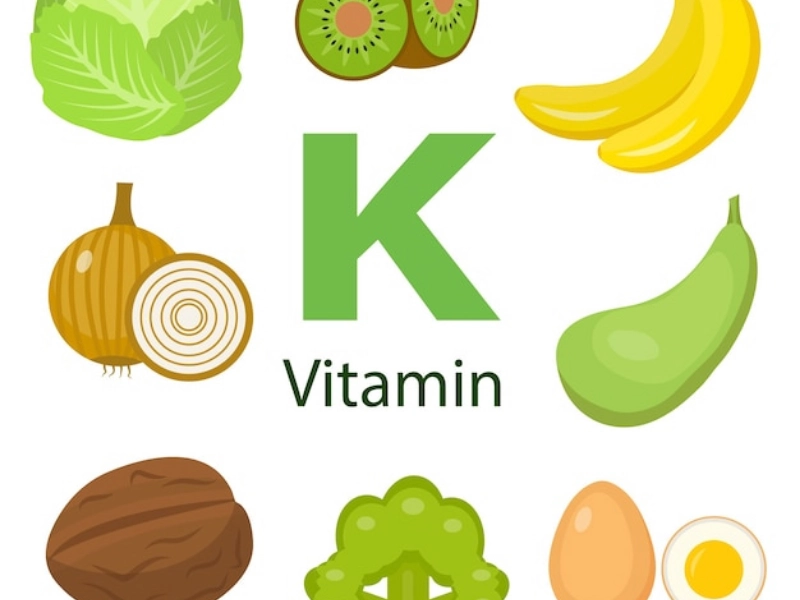 Although vitamin K is most famously associated with blood clotting, it also supports bone health. Particularly, vitamin K2 helps control blood calcium as well as calcium in the bones. It stimulates bone mineralisation by helping osteocalcin, a protein that hooks calcium to the bone matrix, become active. Studies indicate that enough vitamin K intake might lower the incidence of osteoporosis and fractures, therefore stressing its relevance outside only coagulation.
Although vitamin K is most famously associated with blood clotting, it also supports bone health. Particularly, vitamin K2 helps control blood calcium as well as calcium in the bones. It stimulates bone mineralisation by helping osteocalcin, a protein that hooks calcium to the bone matrix, become active. Studies indicate that enough vitamin K intake might lower the incidence of osteoporosis and fractures, therefore stressing its relevance outside only coagulation.
7. Interactions between Other Nutrients
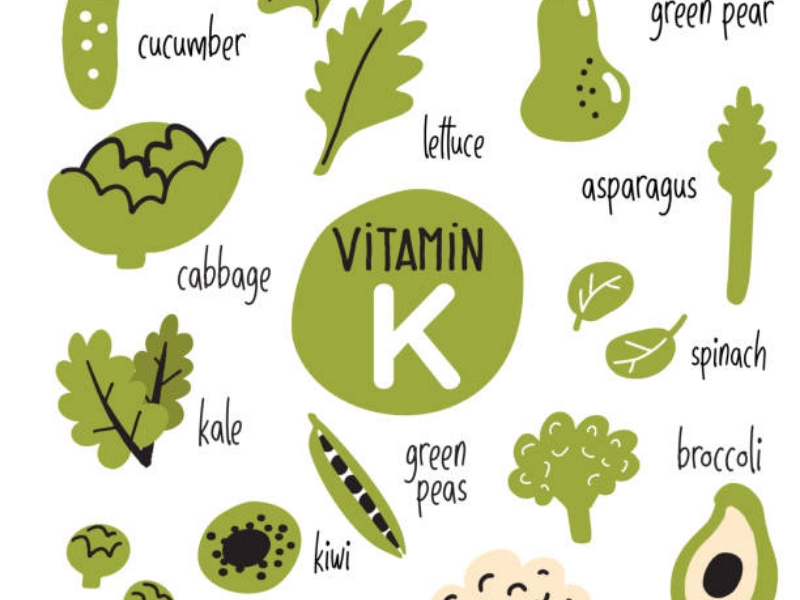 Vitamin K interacts with other nutrients, most especially calcium and vitamin D. While vitamin K guarantees that calcium is focused towards the bones instead of soft tissues, vitamin D improves calcium absorption. Maintaining bone density and general skeletal health depends on this combination. A well-balanced diet including enough calcium, vitamin D, and vitamin K can support both blood coagulation and bone health.
Vitamin K interacts with other nutrients, most especially calcium and vitamin D. While vitamin K guarantees that calcium is focused towards the bones instead of soft tissues, vitamin D improves calcium absorption. Maintaining bone density and general skeletal health depends on this combination. A well-balanced diet including enough calcium, vitamin D, and vitamin K can support both blood coagulation and bone health.
8. Factors of Supplementation
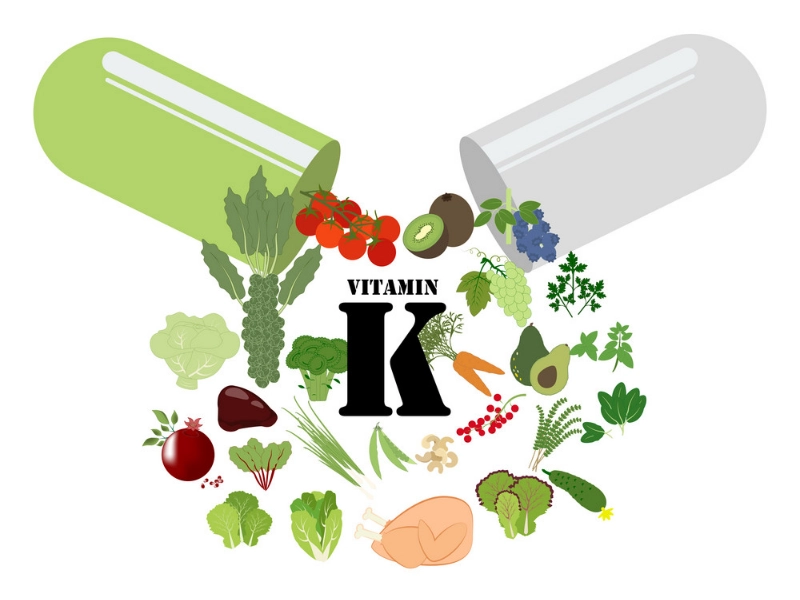 For those who could be in danger of vitamin K shortage, supplements can help. Before beginning any supplements, though, it is advisable to see a healthcare practitioner, particularly for people on anticoagulant drugs like warfarin, which might interact with vitamin K. Managing blood coagulation and guaranteeing that any supplements are suitable and safe depend on knowing how much vitamin K one consumes.
For those who could be in danger of vitamin K shortage, supplements can help. Before beginning any supplements, though, it is advisable to see a healthcare practitioner, particularly for people on anticoagulant drugs like warfarin, which might interact with vitamin K. Managing blood coagulation and guaranteeing that any supplements are suitable and safe depend on knowing how much vitamin K one consumes.
9. Finish on the Value of Vitamin K
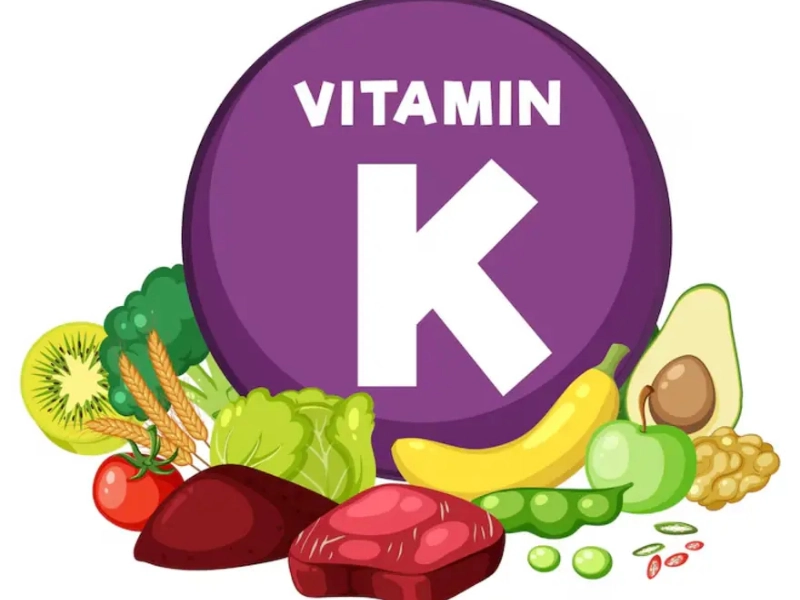 Blood coagulation and general health depend on vitamin K in some important way. Its participation in the production of important clotting factors guarantees that the body can react to accidents and stop too much bleeding. Apart from that, vitamin K interacts with other nutrients to preserve ideal physiological activities and helps with bone integrity. Understanding the need for vitamin K and including it in the diet from several food sources would help people to maintain their health and well-being.
Blood coagulation and general health depend on vitamin K in some important way. Its participation in the production of important clotting factors guarantees that the body can react to accidents and stop too much bleeding. Apart from that, vitamin K interacts with other nutrients to preserve ideal physiological activities and helps with bone integrity. Understanding the need for vitamin K and including it in the diet from several food sources would help people to maintain their health and well-being.
10. Synopsis of Vitamin K's Function in Blood Clotting.
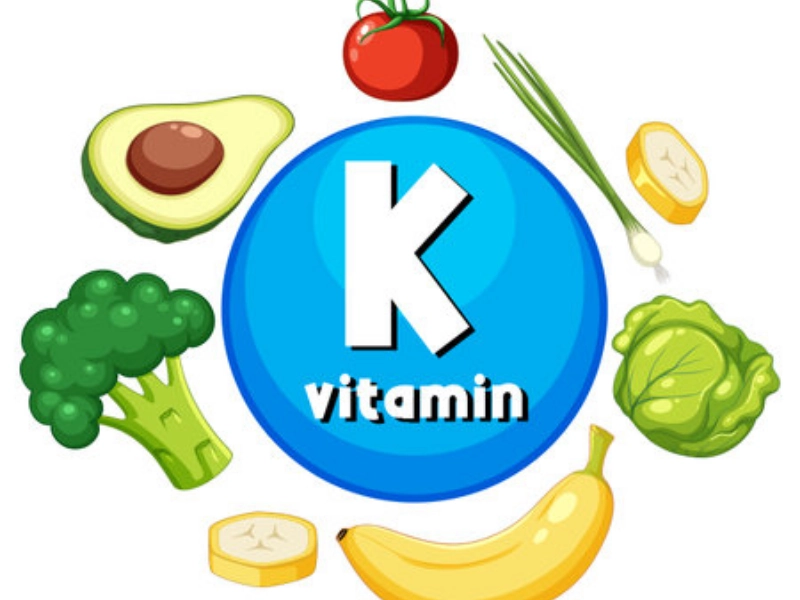 All things considered, vitamin K is an essential vitamin that greatly helps the blood clotting mechanism function. Its function in the manufacture of clotting factors is vital since it helps to control too much bleeding and preserve general health. A diet high in vitamin K from many sources can help people fulfil their dietary requirements and increase lifespan. Support of blood health and bone integrity as one ages depends on knowing and giving vitamin K top priority in the daily diet.
All things considered, vitamin K is an essential vitamin that greatly helps the blood clotting mechanism function. Its function in the manufacture of clotting factors is vital since it helps to control too much bleeding and preserve general health. A diet high in vitamin K from many sources can help people fulfil their dietary requirements and increase lifespan. Support of blood health and bone integrity as one ages depends on knowing and giving vitamin K top priority in the daily diet.

